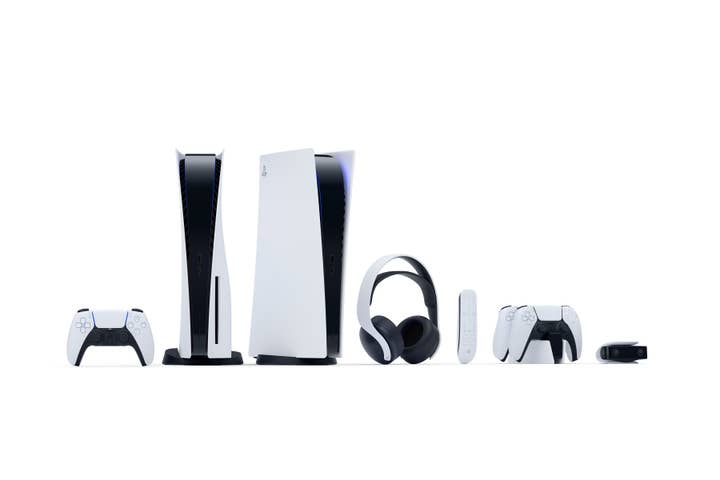PlayStation 5's reveal was all about continuity | Opinion
Laser-focused on game announcements, Sony's unveiling was an hour-long promise to maintain the software strategy that has driven the PS4's success
If there was a single unifying message to the hour of densely packed game announcements and footage that Sony used to make its first real pitch to consumers for PlayStation 5, it was a simple one: If you like PlayStation 4, you're going to love this.
It wasn't just that the huge line-up of games included sequels to major PS4-era hits like Spider-Man, Horizon: Zero Dawn and Resident Evil 7; the whole approach to software and the handling of the reveal event itself shows a huge emphasis on continuity. Sony wants the world to know about its new console, of course, but it's also very keen for you to know what isn't changing -- that the software strategy it's pursued with such success in the past decade is going to carry over smoothly onto the next-gen platform.
Sony wants the world to know about its new console, but it's also very keen for you to know what isn't changing
There's a tricky balancing act at work here, in fact, and it's interesting to see just how differently Sony and Microsoft are each choosing to approach the challenge. Microsoft's focus thus far has been intensely hardware-led, and while that balance is now shifting over towards software somewhat, almost everything we've seen thus far of the Xbox Series X has been about the performance, functionality and design of the hardware. Microsoft wants you to know what its new machine can do.
Sony, meanwhile, has certainly discussed functionality and hardware to some degree, but it used events like Mark Cerny's GDC talk to get a lot of technical details out in front of the world without ever really "unveiling" the console. That unveiling turned out to be almost entirely about software. The capabilities of the hardware were defocused to the extent that we were even spared the traditional litany of developers and product managers reciting scripted lines about how the game we're seeing wouldn't have been possible without some specific feature of the new hardware.
I don't doubt that many of the games on PS5 will take advantage of the new hardware in interesting and meaningful ways -- especially the open world titles like Spider-Man and Horizon, which are obviously set to benefit from the system's very high-performance storage -- but Sony made a conscious choice not to hammer home the benefits, instead pushing consumers' attention towards the line-up of games they'll be able to play.
Sony has clearly decided that the best way to sell the new system is via its game line-up
One could look at this cynically and note that the PS5 hardware is, on paper at least, not as high-spec as the Xbox Series X, so Sony might have good reason to direct people's attention away from hardware specifications. But this kind of "console war" framing is largely misguided, because Sony's major initial challenge isn't winning over people deciding between a PS5 and an Xbox Series X, but rather convincing its tens of millions of PS4 owners that it's worth upgrading.
In that regard, Sony has clearly decided that the best way to sell the new system is via its game line-up -- and the 25 titles stuffed into its launch event, most of which we haven't seen before, is a pretty solid opening salvo for that strategy. Not all of the games we saw are PS5 exclusives, of course; many of them will also be on XSX and/or PC, and it'll be interesting to find out how many of them will turn up on PS4 as well. Even if we filter the list to look solely at exclusives -- first-party or Sony-published titles -- it still represents a pretty impressive flex of the studio muscle that Sony has spent the past decade and more building up.

The emphasis was very strongly on variety, with some curation evident in the selection of games chosen -- this was a showcase of the breadth and depth of the PlayStation software line-up, from AAA to indie, from "mature" to family-friendly, from familiar franchises to totally new IPs, and from genre staples to downright oddities. Games like Jett: The Far Shore and Goodbye Volcano High -- while they both look really interesting -- are arguably an odd choice of title to give time to in a next-gen console unveiling, but they were there, in part, for precisely that reason; to counterbalance the likes of Resident Evil and Gran Turismo, and show the continuity between the PS4's flourishing software ecosystem and the one Sony is nurturing on PS5.
The real next-gen "console war" is one that's going to be largely waged through game quality and exclusivity
Microsoft will get its turn to unveil major first-party titles and exclusives in the very near future, but it's hard to escape the sense that by really drawing attention to the software line-up from the outset, Sony has deftly turned the next-gen conversation around to its own strengths. Certainly, there'll be a degree of "is the PS5 really that much better than PS4?" in people's deliberations about the announcements, especially since most people will be watching relatively low-resolution, low-framerate streaming video of the games. But this generation was always going to be a victim of diminishing returns, at least in terms of graphics, which means there's a lot to be said for the approach of "here are a ton of interesting games, by the way you'll need this console to play them," as distinct from a heavy focus on the console hardware that attempts to position it as a desirable product in and of itself.
Moreover, it seems to have worked. Discussion about the Sony event has largely consisted of people focusing on the games that interest them -- and, okay yes, also the way the hardware looks like it popped out nine months after a Sharp dehumidifier had a night of passion with a Linksys router -- and the question of competing hardware specs or the value proposition of the generational upgrade has been relegated to the background.
While emphasising continuity instead of hyping up a major generational leap might seem an unusual strategy for a company that's about to try to sell an expensive piece of consumer hardware, it's actually a pretty safe and solid approach given Sony's current position. I've noted before that after the major errors and upsets of the past couple of generational transitions -- Sony's awful handling of the transition to PS3, followed by Microsoft's botching of the transition to Xbox One -- we're all somewhat primed to expect one of these companies to mess up. However, all the evidence thus far suggests that both firms, despite increasingly divergent strategies, have solid, sensible plans for their next-gen hardware and launches.
There are still plenty of months left for one or the other of them to drop the ball, of course, but it seems far more likely that both PS5 and XSX are going to arrive on the market at the end of this year as fairly compelling platforms. That will be good for the industry overall, especially for consumers, and it means that the real next-gen "console war" is one that's going to be largely waged through game quality and exclusivity. In that sense, Sony's early focus on software is just getting a small headstart on what will ultimately be a marathon -- and as the generation unfolds, its implicit promise to maintain the quality and diversity of software that has defined the PS4 era will prove to be by far the most potent weapon in its arsenal.

